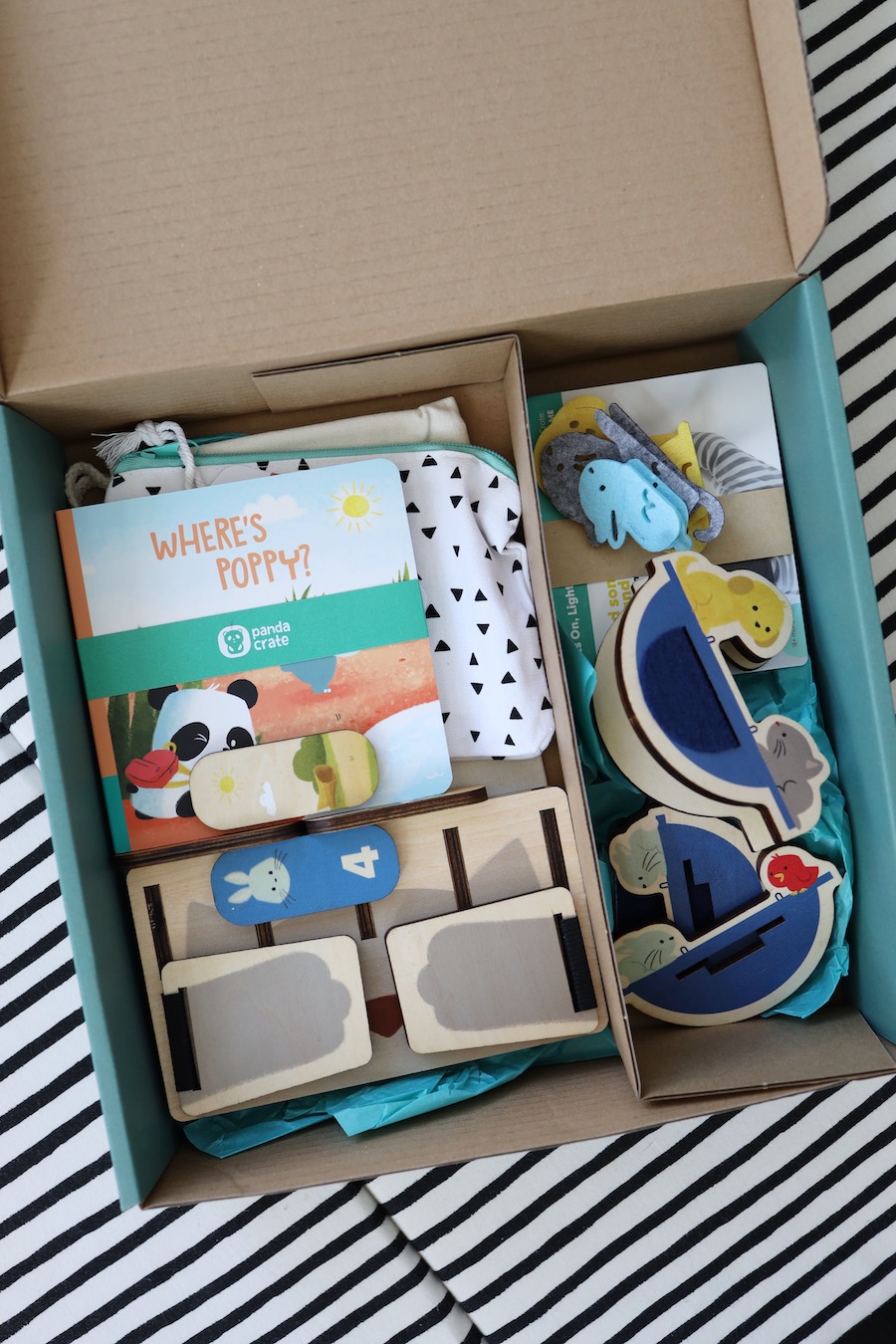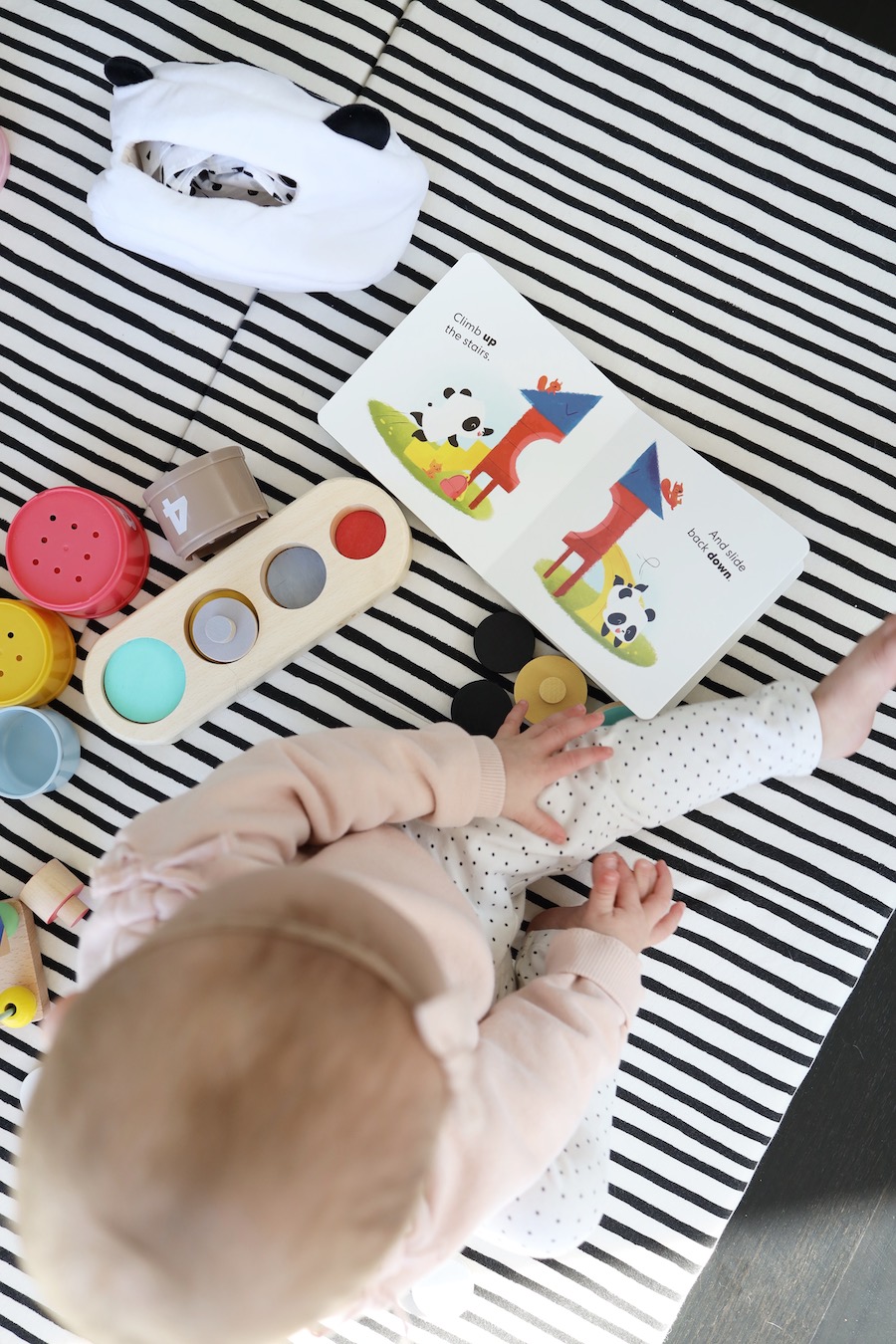Toddlerhood often gets a bad rap – toddlers are known to be tyrannical, stubborn, tantrum-ing little people. And well, that’s not too much of a stretch. But regardless of the frustration, toddlerhood is still my favorite phase to parent through by far.
Why? Because toddlerhood is an absolute magical period when it comes to development. Toddlers are completely in tune with the world around them, and they pick up information at lightning speed. As they explore their surroundings and discover how to be a person, you can almost see their sponge-like brains working in overtime. As a parent, it’s truly incredible to witness.
But unless you’re an expert in early childhood development (and even if you are!), toddlerhood can be a tricky phase for new parents to navigate. What exactly is best for toddlers to play with? How can we support their learning? What exactly should we be saying to them? Part of parenting, as I’m learning, is always wanting to do the right thing but not always knowing how.
Fortunately for toddler parents everywhere, the team at KiwiCo created a subscription box to solve this very problem. Panda Crate was developed specially for infants and toddlers, grounded in the science of early childhood with the intent to make life easier on parents. Each delivery includes age and stage-specific products designed by experts and backed by researchers to help babies learn by doing what they do best – playing and exploring their world.
Each crate also includes a magazine and activity cards to provide parents with the most effective strategies and helpful tips to promote healthy childhood development. All of this shows up on your doorstep every other month without you having to do any extra late-night research or shopping (I can’t be the only lay-in-bed-and-Google mom out there, right?). The best part? You can get it for as low as $15.50 per month, making it as accessible as it is convenient.
And because Panda Crate utilizes the latest science behind early childhood development, you can rest easy knowing that you’re providing your little learners with the right toys and activities to best support their growth and understanding. This leaves us, parents, to focus on bonding and love. It couldn’t be easier. Setting a foundation for a lifelong love of learning is what toddlerhood is all about, and Panda Crate helps us do just that.
As our little ones dive into toddlerhood, this is what we need to keep in mind about their development. Keep reading for six things every parent should know.


1. Remember that development is not linear
Every child is different. And though it’s easy for us, as parents, to compare our kids with those of our friends and family, it’s important to remember that growth is never consistent from child to child.
Because toddlerhood is a time of really rapid brain growth, development often ebbs and flows at its own rate. You might notice your child suddenly experiencing a language explosion, while at the same time, they’re not eating well, and they’re uninterested in walking. Or they’re constantly trying to run, but they don’t want to talk, and their sleep is choppy. This is because your child is so focused on the new things they’re learning, that what they already know has to take a back seat. So, things like sleep regressions and gross motor or language delays are common during this stage – so much growth is happening at once that your teeny tot cannot handle putting it all together at once.
Staying patient through this is not always easy (who wants to deal with more night wakings, right?), but taking solace in the fact that your little one’s efforts are being put towards something specific can be enough to pull you through.
2. Frustration is important for growth
Of course, it’s rough on us to see our kids frustrated by tasks that they’re working on and the limits they’re having to deal with. But giving in or doing the task for them isn’t always a good idea. Frustration can be a motivating factor for growth. Without frustration, there is no tension or stress to propel you forward.
A popular rule among developmental researchers is the 20-second rule. That is, when you notice a moment of stress or frustration while your child is playing or learning, try waiting 20 seconds before intervening. It feels like a lifetime, but in reality, this little snippet of time might be just enough for your toddler to begin to regulate their emotions and start working through frustration. And when they do, you might be surprised with the mastery of a new skill or outcome and the prideful smile of an accomplished little kid.
To sign up for your own Panda Crate subscription with KiwiCo, click here!
3. Practicing self-regulation is vital
Learning how to self-regulate behaviors and emotions is one of the biggest undertakings of toddlerhood – and it’s one that has lasting effects. A child that has a strong sense of self-regulation is better able to pay attention, participate well in school and activities, get along with others, and become more compassionate people. In fact, all of the classic toddler behaviors – emotional outbursts, tantrums, impulsivity, endless amounts of energy – can all be linked back to their inabilities to self-regulate.
One of the best ways for toddlers to learn self-regulation is through independent play. Letting your child play on their own, without overbearing supervision and intervention, can be incredibly beneficial for them. If you offer them simple, interactive toys – like the ones offered by Panda Crate, which are also kid-tested and approved – they can play on their own for brief periods of time and practice working through minor frustrations and disappointments.


4. There is no right way to play
Play is how children learn, we know that. But as adults, it’s often hard for us to break out of a normative mindset, even during play. How often have I said to my kids, “No, not like that,” when they try to use a particular toy or tool in the “wrong” way? But there’s no “wrong” way when you’re playing.
Play is a way for children to build problem-solving skills, push their imagination and creativity, and learn all about things like object permanence and cause-and-effect. In order to do so, though, we have to let them direct their own play. Open-ended toys that can be used for multiple functions are the best way to provide little ones with this experience. Panda Crate’s toy boxes take this theory one step further by providing toys particular to the exact phase of development that your child is in at the moment.
5. Reinforcing effort allows for a growth mindset
It’s in our natural instinct to clap and exclaim “Good job!” when kids finish a task the way we’d like them to, and until a professor commented on my tendency to over-praise, I had no idea that this could be a negative thing. Consistently praising “correct” outcomes can lead to children thinking that one way is “right” as well as lead them to do things for praise instead of self-motivation. This, in turn, can hinder their creativity, limit alternative solutions, or squash their desire to experiment with materials.
What we can do instead is focus on their learning process and create a safe space for mistakes while they try different things. Phrases to encourage this include: “That was hard, but you kept trying,” “Wow, what a creative idea. You’re teaching me something new,” and “What else can we use this for?” Gently nudging your little one to take a step further in their play gives them the opportunity to reach beyond their limits and build the confidence they need to learn something new.



6. Love, warmth, and empathy are a toddler’s greatest needs
Toddlers are tiny people filled with extreme internal conflict. They have a need to express themselves but don’t have the words to do so yet. They have a desire for independence but are limited by their physical capabilities. They have a tendency towards perfection but often leave chaos in their wake. They want to run, but they’re just learning to walk.
We joke that toddlerhood is full of frustration and confusion for parents, but those experiences are nothing compared to what our kids are growing through. Sometimes, the best we can do is just love them through it.

This post was in partnership with KiwiCo but all of the opinions within are those of The Everymom editorial board.



 "
"
